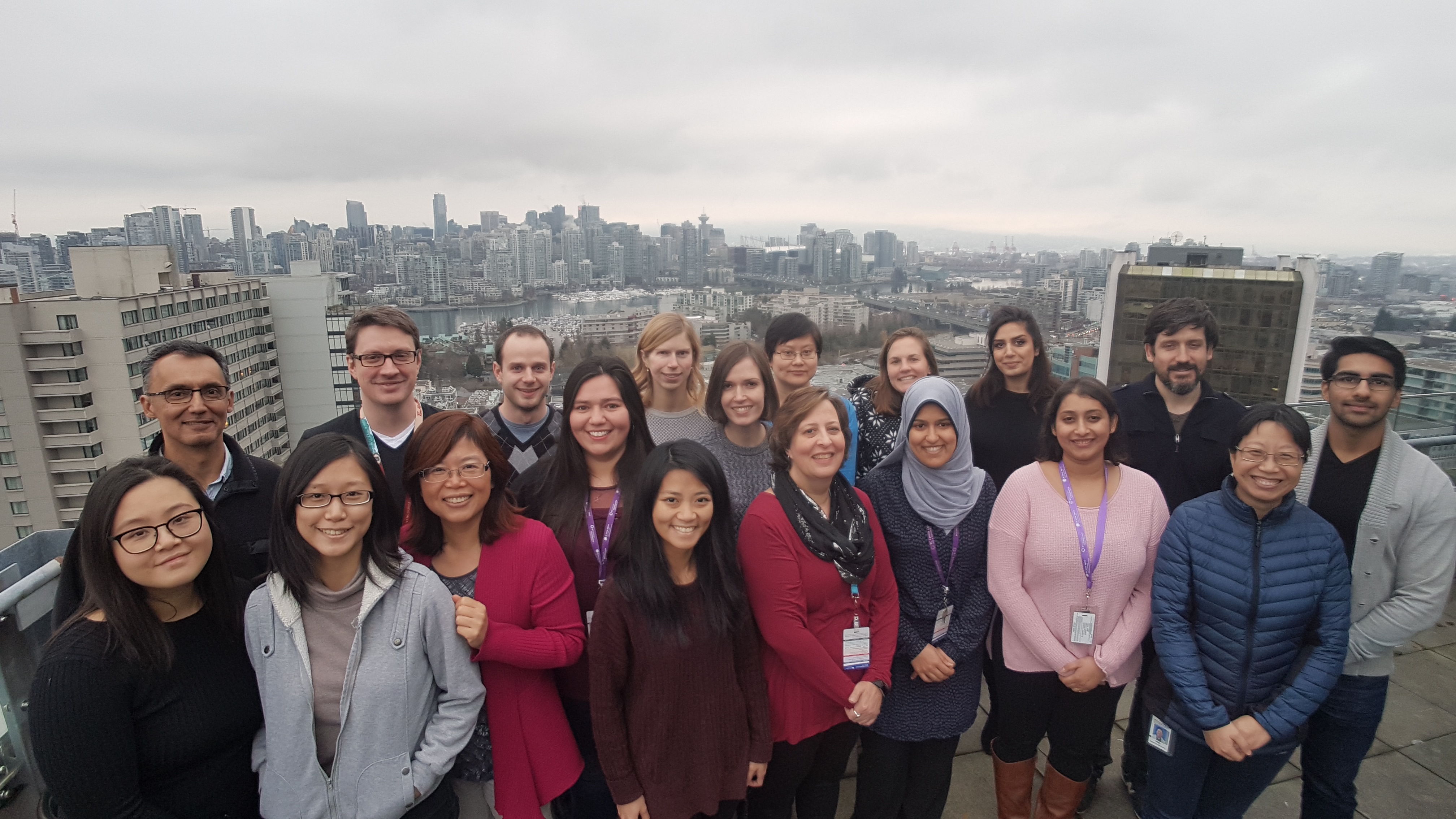A new discovery by a group of TFRI-funded researchers is helping to answer a question long-held by scientists studying a group of rare blood and bone marrow cancers known as myelodysplastic syndromes (MDS): how the same disease could lead to the development of two seemingly opposite conditions.
In a study published in Nature Communications (June 2018), the team led by Dr. Aly Karsan (BC Cancer) suggests that the key to understanding how both bone marrow failure and acute leukemia can be caused by MDS lays in the loss of two microRNAs (143 and 145), which are both present in the long arm of chromosome 5, a chromosome commonly deleted in patients with MDS.
“While we have known for a while that the deletion of chromosome 5q is the most common chromosomal aberration in MDS, what we discovered in this study is that the loss of miR-143/145 actually activates a signalling pathway in marrow blood cells called TGFβ, which suppresses the creation of blood stem cells while expanding the number of slightly more mature progenitor cells being created in the bone marrow,” said Dr. Karsan.
This explains why MDS can lead to bone marrow failure caused by low levels of healthy blood cells, while also causing acute leukemias associated with the proliferation of malignant cells derived from progenitor cells that flood the bone marrow.
This discovery opens the door for the development of potential therapies that could improve outcomes for patients with MDS by identifying a new therapeutic target.
“These findings suggest that clinical trials with inhibitors of the TGFβ pathway may be warranted in MDS patients with deletion of chromosome 5,” said Dr. Karsan.

Study
miR-143/145 differentially regulate hematopoietic stem and progenitor activity through suppression of canonical TGFβ signaling
Authors
Jeffrey Lam, Marion van den Bosch, Joanna Wegrzyn, Jeremy Parker, Rawa Ibrahim, Kate Slowski, Linda Chang, Sergio Martinez-Høyer, Gianluigi Condorelli, Mark Boldin, Yu Deng, Patricia Umlandt, Megan Fuller and Aly Karsan.
Funding
This study was partially funded by a Terry Fox New Frontiers Program Project Grant in Exploiting Pathogenic Mechanisms in Acute Leukemia for Clinical Translation